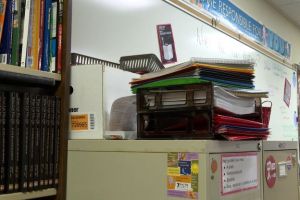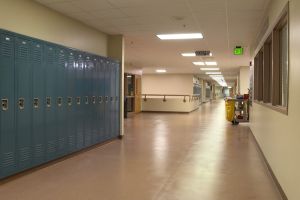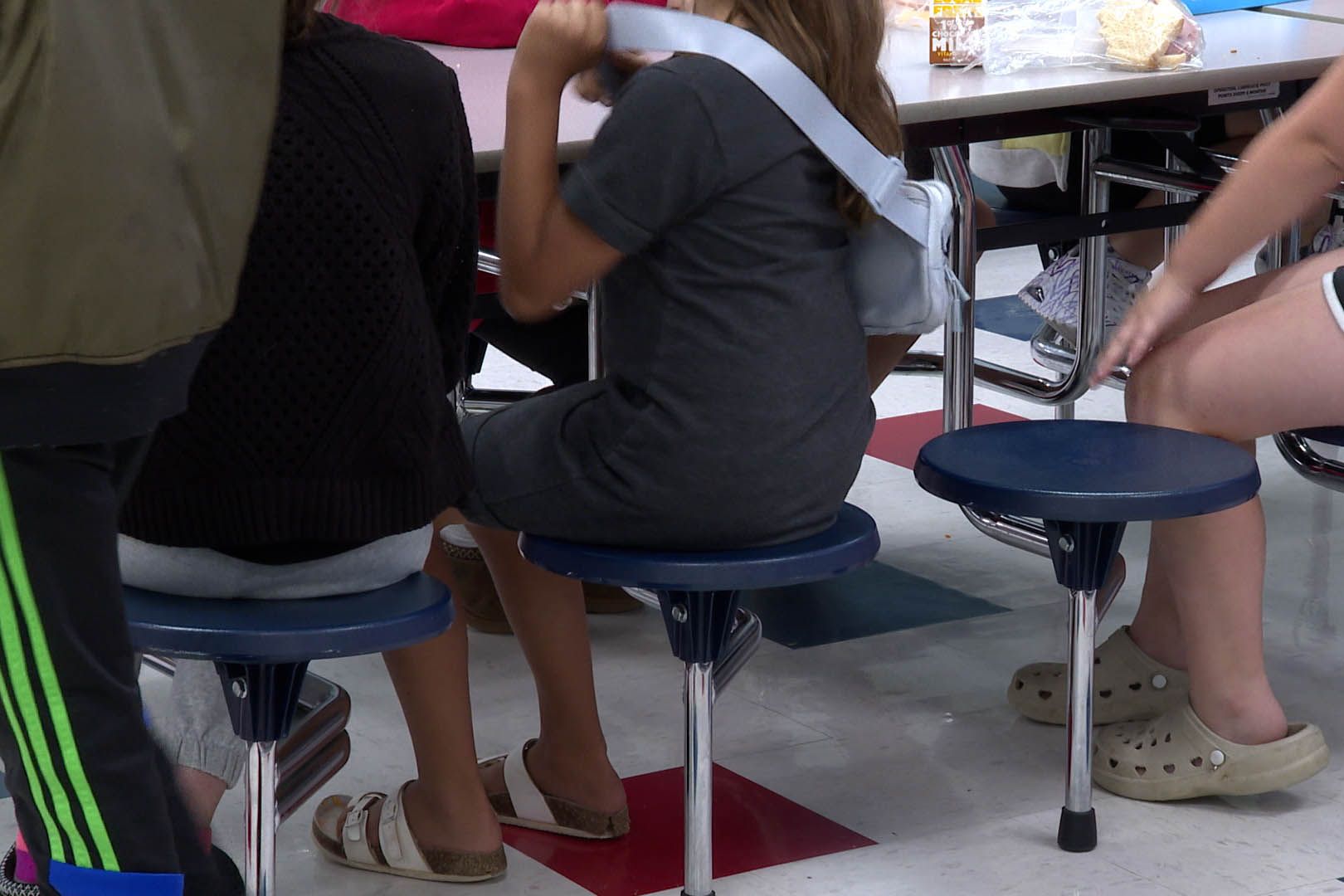
The proficiency rate for IREAD-3, the test given to third graders to evaluate their reading abilities, dropped from the 2018 to 2022. (Bente Bouthier/WTIU News)
Literacy rates have been declining for the last decade in Indiana, according to the Indiana Department of Education. The proficiency rate for IREAD-3, the test given to third graders to evaluate their reading abilities, dropped notably from the 2018 to 2022.
To address concerns lawmakers passed Senate Enrolled Act 1 during the 2024 legislative session. The new law passed contains measures to retain third graders who don’t pass IREAD can’t advance to the next grade.
For Shawn Dilts, who has four grandchildren who live with her, the new measure is concerning. She has an incoming high school senior, seventh grader, fifth grader, and third grader who attend school with the Monroe County Community School Corporation.
Dilts signed them up for online summer school, which starts soon. She wanted them to feel prepared for the next grade, especially since her grandson will take IREAD-3 this year.
A couple years ago, her granddaughter, an incoming fifth grader at Binford, just barely missed the mark to pass the IREAD-3 test.
“I just arranged to be able to work with her," Dilts said. "And then she was able to retake the test. And luckily she did well with the test and moved on to fourth grade. But still, just reading comprehension with COVID, I think it affected the kids."
More than 18 percent of state third graders did not pass the test that year.
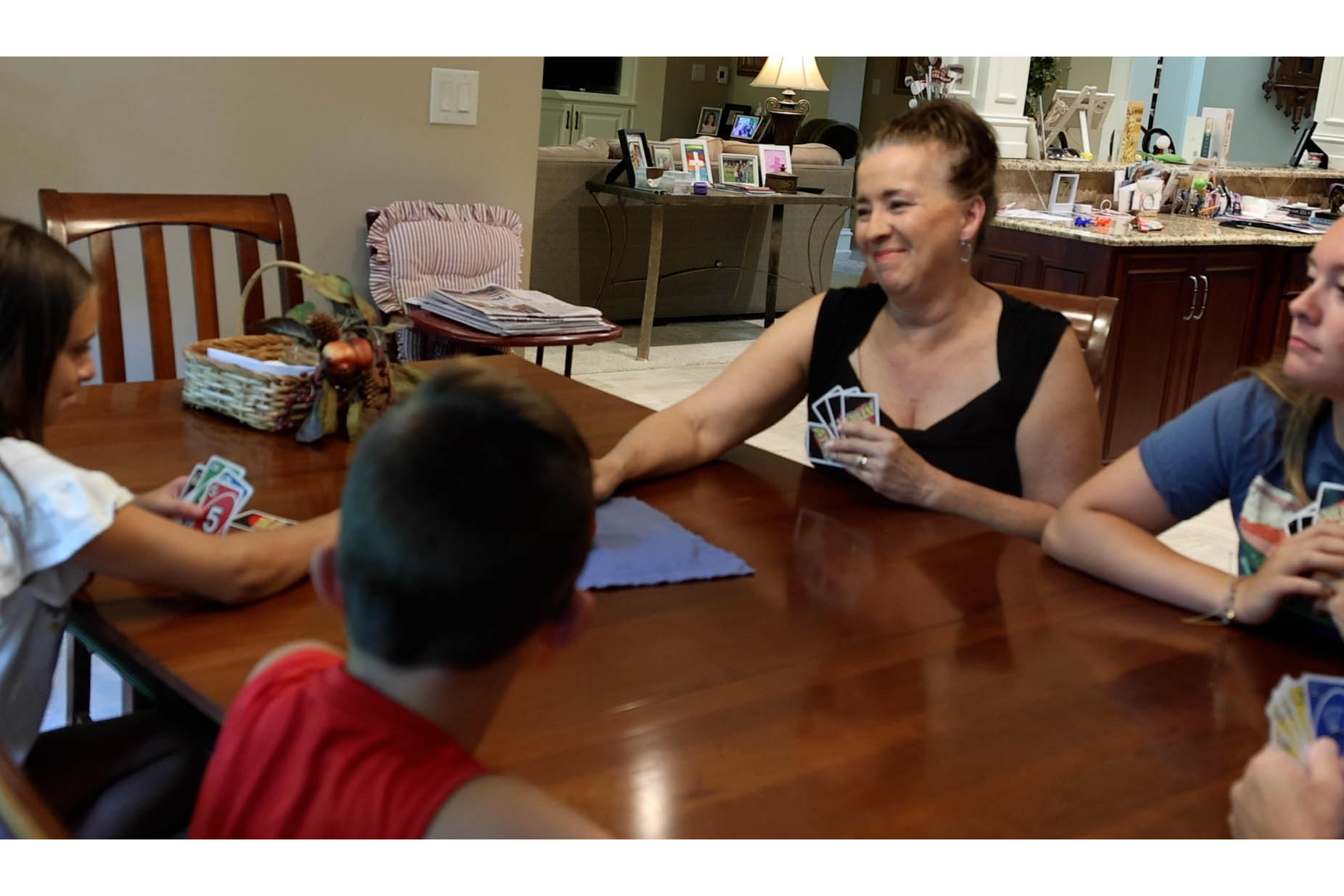
The reading retention rule becomes effective for the upcoming academic year. Third graders must repeat the grade if they don’t pass the reading proficiency test, with some exceptions.
Dilts said the measure doesn’t account for test taking ability or a teacher’s input.
"Students may do great on their work for weeks leading up to that, but that's not taken into consideration."
She worries that the law will pressure teachers to use more class time to teach to the test.
About 40 minutes down State Road 37, thirty-six third graders gathered in Parkview Elementary’s lunchroom in Bedford for summer school. All retook the IREAD exam this month.
If the class doesn't pass their summer retake, they’ll receive individualized instruction during the school year and retake the test in fourth grade. They are the last class where this will be the case. After this summer, students who don’t pass will not be allowed to advance without a passing grade.
Most schools give the test starting in second grade and then again in third. The state’s grade retention policy goes into effect for incoming third graders this academic year.

John Lemons has taught summer school for a few years at Parkview and is the North Lawrence Community Schools reading specialist.
He said the upcoming year will be pressure packed.
He added for a lot of kids who don’t pass IREAD-3 in second or third grade, he reading comprehension isn’t the issue.
“A lot of the way the state asks (kids) to engage in reading is not familiar to the students," Lemons said. "So just kind of walking them through the metacognitive approach to taking some of those tests can be helpful.”
For other students, problems may include focus, time on task, or trauma-based factors.
All five of North Lawrence Community’s elementary schools are Title I. In the 2022-23 school year, more than 84 percent of its students passed IREAD. The corporation had a higher passing rate than most surrounding districts.
Tricia Hudson is the North Lawrence Community Schools curriculum director. She said dedicated educators, science of reading, and a strong summer school program make a big difference for the district.
But holding kids back raises funding issues. Districts can apply for reimbursement from the state. In 2015, more than 270 schools participated in the state’s reimbursement program. Forty schools joined by 2022.
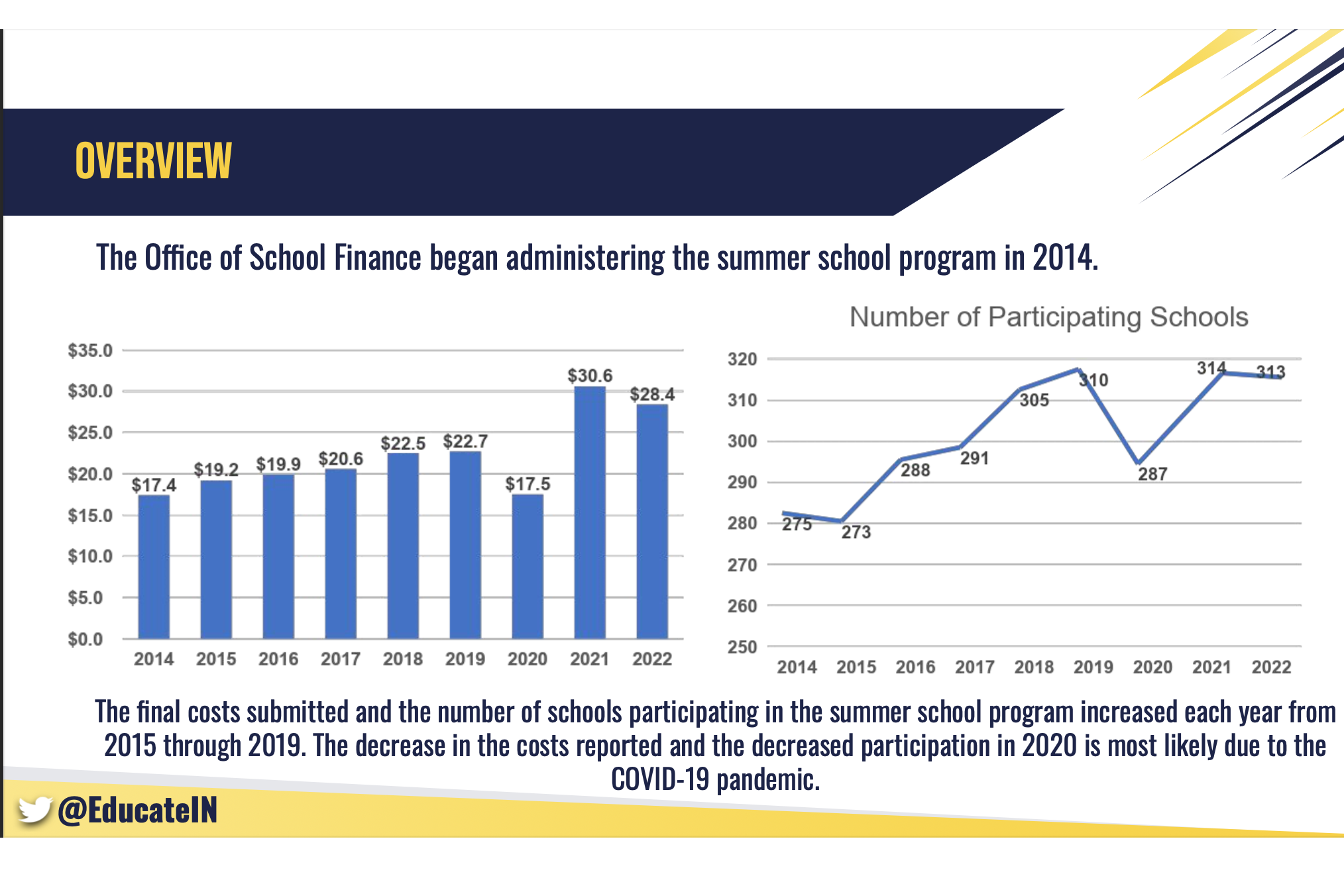
(Courtesy of the Indiana Department of Education)
But the average student-teacher ratio must be 15:1 for reimbursement. And Hudson said that needs to be smaller, so teachers can give students more individual attention.
"We would never have an intervention group during the school year at 15 students to one teacher, that's just unheard of," she said. "We want to keep those groups at four to six students per teacher, if we're talking intervention, and that's truly what the summer school would be, it would be an intervention. So those guidelines are really difficult to stomach."
Hudson's district scaled its summer programming back to only the pre-k jump start program and third grade reading this year, because of federal funding cuts and an end to COVID relief.
The state has also mandated salary increases for teachers, which Hudson said is needed. But the increase eats into Title 1 funds that were used for summer school.
Hudson does credit the state's allocation of $185 million to support regional reading programs and summer school this year, across more than 80 counties. She appreciates grants offered by the state for the science of reading.
Summer school funding is appropriated in the state budget. The total appropriation since 2019 is $18,360,000. If reimbursement requests exceed what the state allocated, the IDOE reduces funds proportionately, according to a spokesperson.
IREAD scores for this year won’t be released until August, when summer retakes are done.
Dilts’ grandson, an incoming third grader, will take the reading proficiency exam this year.
She’s considering moving him to Clear Creek Christian, a private school. He started kindergarten during the pandemic two years ago and Dilts thinks smaller class sizes might benefit him.
"So that he will be prepared for a number of things, but definitely for the IREAD 3.”









